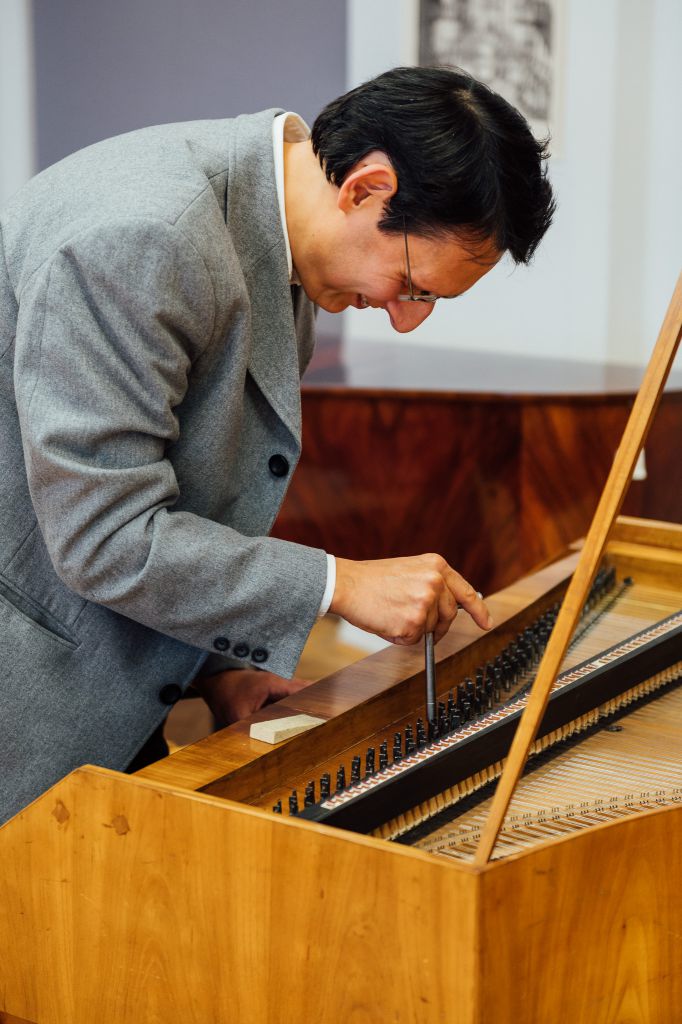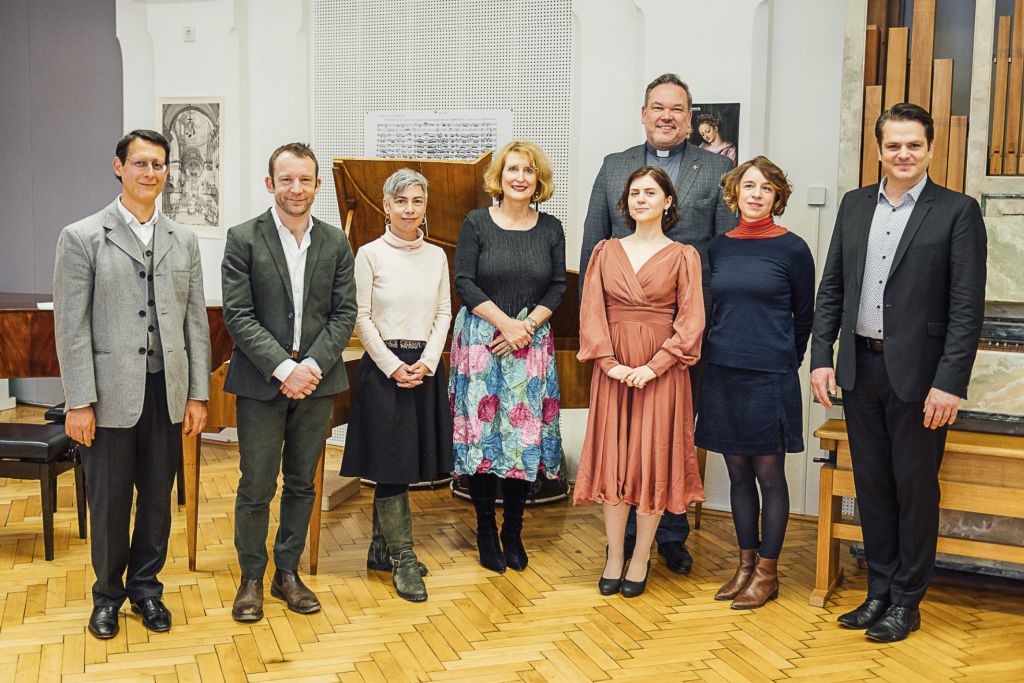Long in the illegitimate possession of the KHM and the mdw, restituted in 2019, and now officially back at the Department of Early Music: the 1810 Rosenberger fortepiano
In early February, the Early Music Studio at the mdw’s Singerstraße location witnessed the Teutonic Order’s formal presentation of a Rosenberger fortepiano to the mdw. It was a small but celebratory act with a lengthy backstory: this original fortepiano, built in 1810 by the Viennese maker Michael Rosenberger, arrived at the then-Academy of Music and Performing Arts Vienna as a permanent loan of Vienna’s Kunsthistorisches Museum in 1948 and was thereafter made available to students as a teaching instrument.

It was only in 2019, however, that this instrument’s history was researched: it had previously been owned by the Teutonic Order in Bruntál (Freudenthal) in what is now the Czech Republic. The Teutonic Order, one of the major religious orders of knights founded during the Crusades, was expropriated by Hitler’s National Socialist regime in 1938. The stolen instrument was initially taken into possession by the Reichsgau Sudetenland (a Nazi administrative subdivision) before entering the holdings of the KHM as part of an exchange of art objects in 1942 and subsequently being offered by the museum to the State Academy in 1947 as a loan.

The next note in this instrument’s file was added 40 years later, at which point the KHM’s Collection of Historic Musical Instruments—with permission from the Ministry of Education—removed the instrument from its inventory and gifted it in full to what was then the Hochschule of Music and Performing Arts. It was only after a further 30 years that this instrument’s history was finally investigated by the provenance researcher Monika Löscher. The resulting serious doubts about whether the mdw’s ownership of this instrument was legitimate moved the mdw Rectorate to take the matter to Austria’s Art Restitution Advisory Board, which recommended restituting the instrument to the Teutonic Order. The mdw subsequently followed this legally non-binding recommendation.

The instrument itself bears virtually no traces of its turbulent history, as provenance researcher Monika Löscher and Commission for Provenance Research head Pia Schölnberger had the opportunity to personally ascertain together with mdw Rector Ulrike Sych and the Teutonic Order’s Grand Master Frank Bayard. And on the occasion of this instrument’s now-legitimate handover as a loan generously extended to the mdw by the Teutonic Order, a concert was given by Mikayel Balyan, Stefan Gottfried, and Valeriia Komarova on and with this instrument, providing an impressive taste of how it sounds as presently used by the Department of Early Music.

